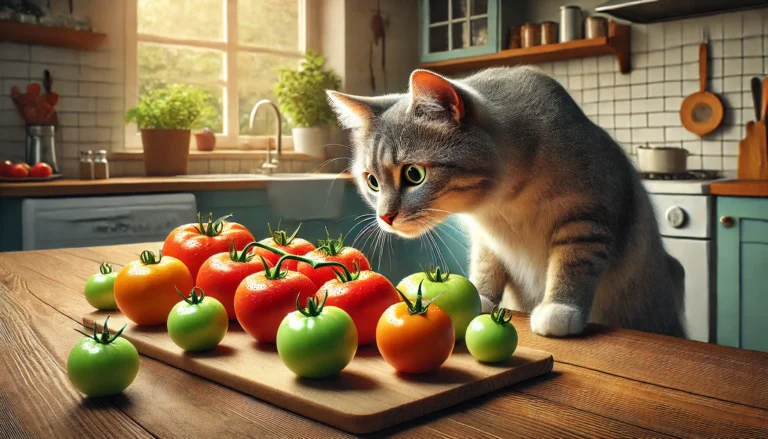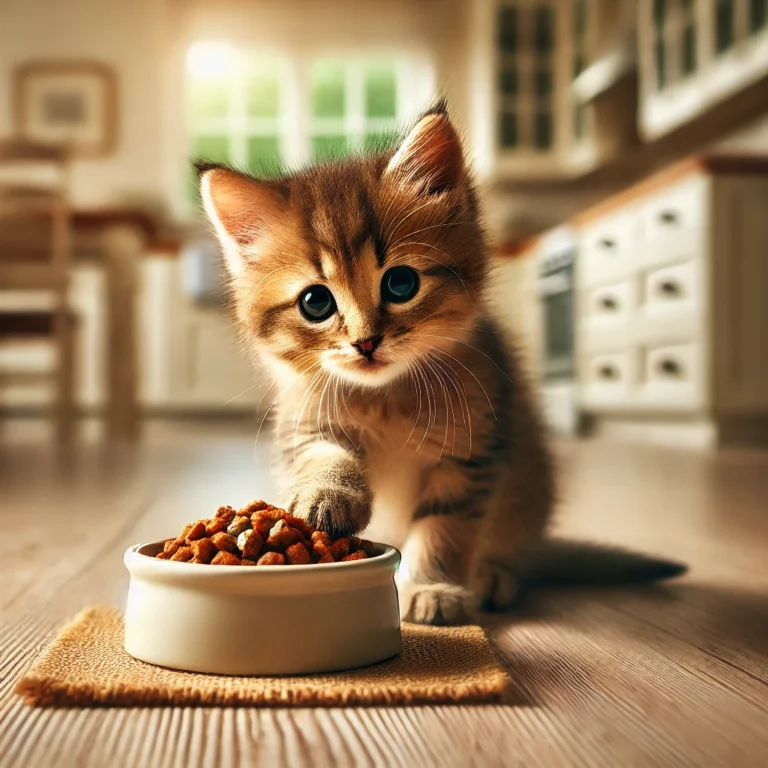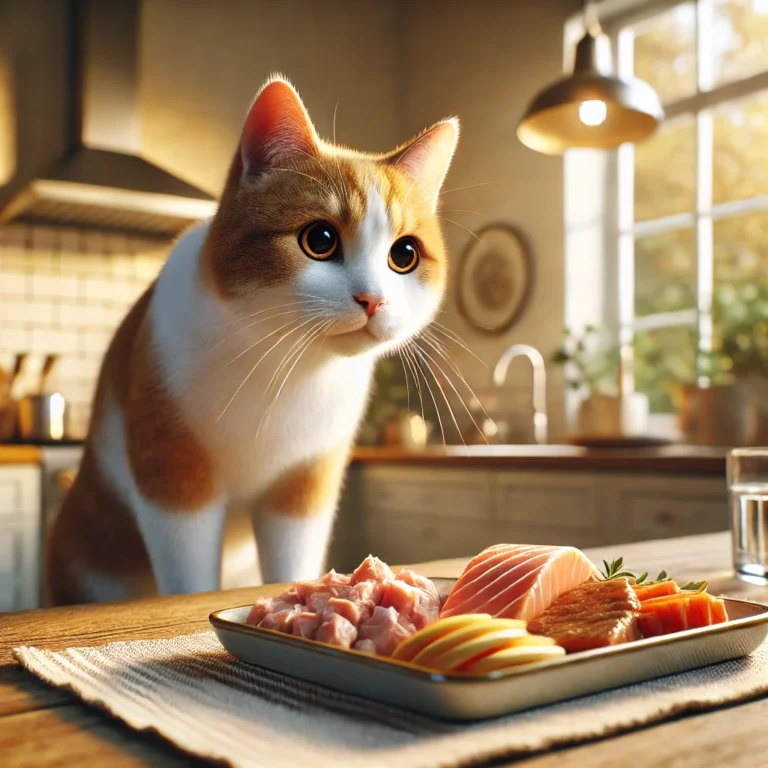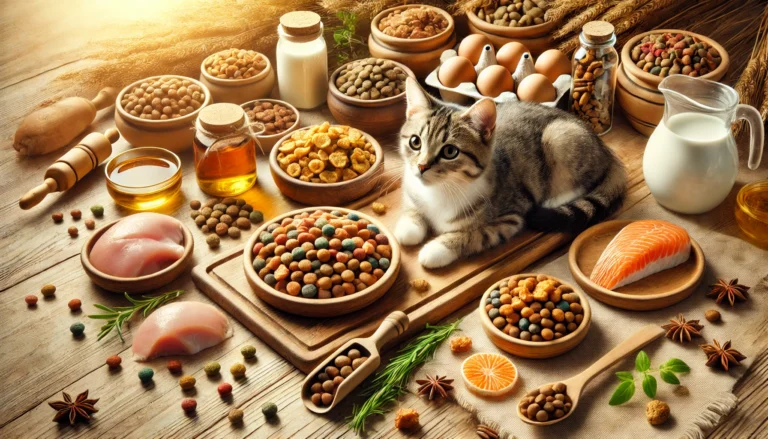when, how much, and How often should a kitten eat?

Bringing a new kitten into your home is an exciting time filled with cuddles and playful moments. But it’s crucial to get their diet right to ensure they grow up healthy and strong. Understanding how often should a kitten eat is key, as their tiny tummies need frequent, balanced meals to support rapid development.
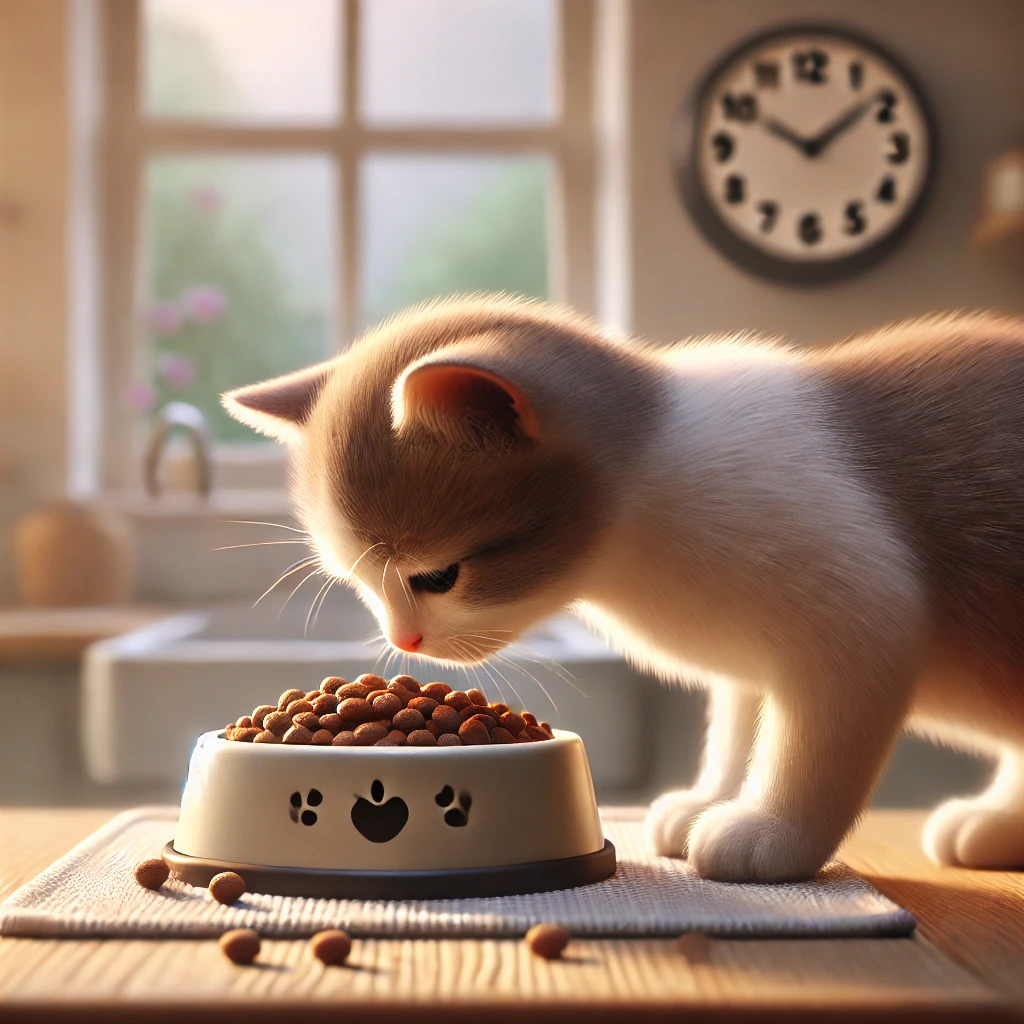
Understanding Kitten Growth and Feeding Stages
From Birth to Weaning: Milk and More
In their first weeks, kittens rely on their mother’s milk or a high-quality kitten milk replacer. During this phase, how often should a kitten eat should be frequent—approximately every 2-4 hours. By three weeks old, you might wonder, “How much to feed a kitten 3 weeks old?” At this stage, kittens should start consuming about 8 milliliters of formula per ounce of body weight per day.
Transition to Solids: When and How
As kittens grow, around the age of four weeks, you may ask “When will kittens eat solid food?” This is the time to introduce wet kitten food, ideally mixed with formula to create a slurry. This stage prepares them for weaning, which often leads to another question: “When can kittens stop nursing?” Typically, kittens are ready to be weaned off milk completely by eight weeks. During this transition, how often should a kitten eat shifts to fewer milk feedings as they start solid food.
Increasing Independence: Solid Foods and Scheduled Feedings
By eight weeks, your kitten should transition toward more solid foods, like the specially formulated Science Diet Kitten or Purina Pro Plan Kitten Wet food. The question “How often should a kitten eat at 8 weeks?” is crucial—the answer is three to four times a day, with the amount adjusted for growth and activity levels.
Nutritional Requirements for Growing Kittens
Kittens need a diet high in proteins and fats to support their development. Brands like Purina Weight Management Cat Food and Science Diet Kitten provide specially formulated nutrients that cater to kittens’ needs, including essential vitamins and taurine for heart and eye health. Consistently asking “How often should a kitten eat?” helps tailor their dietary plan as they grow.
How Often Should a Kitten Eat: A Detailed Guide
Tips
Among loyal cat owners, there is always an ongoing debate whether Silvervine plant is an alternative to catnip? It is important to note benefits and difference between these two amazing things.
By Age and Development
The frequency and amount of food depend on their age and size. A common query like “How much dry food should my cat eat?” changes when talking about kittens. For instance, a 5 week old kitten feeding schedule should include small, frequent meals of wet food, as their digestive systems are still developing.

By Type of Food
The choice between dry and wet food also impacts feeding frequency. Dry food, like Purina One Kitten Dry Food, can be left out longer, allowing kittens to nibble throughout the day. However, wet food, which may be easier for young kittens to eat, should be given in controlled portions to prevent spoilage. Regularly revisiting “How often should a kitten eat?” can help determine the best feeding strategy.
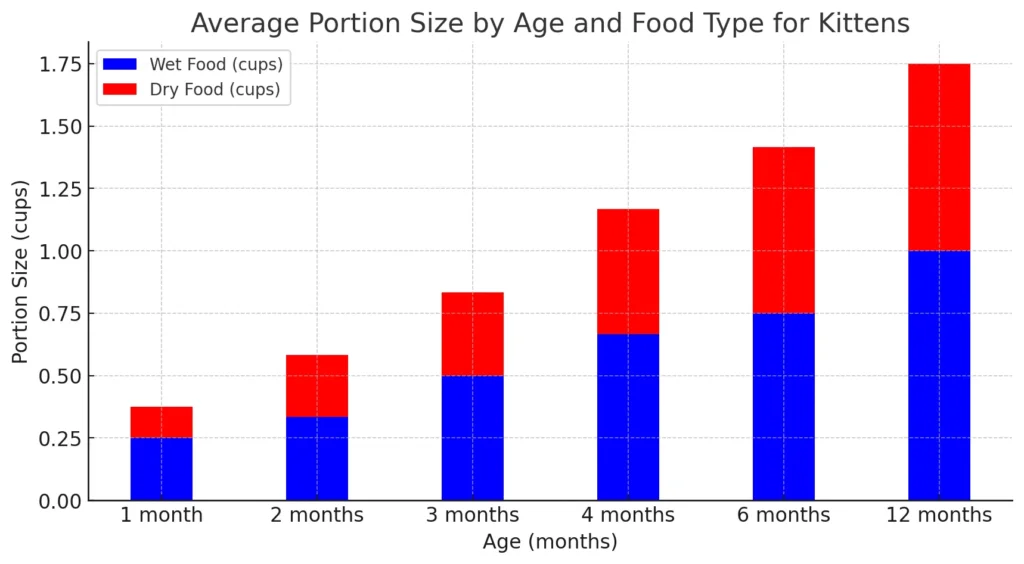
Common Feeding Issues and Solutions
Adjusting to New Diets and Schedules
Kittens may experience digestive issues as they transition to new foods. Questions like “What to feed a kitten from home?” or “How much wet food to feed a kitten?” should be answered with a focus on gradual dietary changes and monitoring for any signs of distress.
Overcoming Feeding Challenges
Whether you’re dealing with a picky eater or trying to figure out “How often should you feed a cat?” the key is consistency and patience. Using a kitten feeding chart by age can help determine the right amounts, and scheduled feeding times aid in developing a routine.
| Kitten Age | Feeding Frequency | Notes |
|---|---|---|
| 0-1 month | Every 2-3 hours | Milk or milk replacer only |
| 1-2 months | 4-6 times per day | Introduction of wet food |
| 2-4 months | 3-4 times per day | Gradual introduction of dry food |
| 4-6 months | 3 times per day | Stable diet, mix of wet and dry food |
| 6 months + | 2-3 times per day | Transition to adult cat food schedule |
Conclusion: Healthy Habits for Happy Kittens
Knowing how often should a kitten eat is vital for their health and happiness. Regular vet check-ups, balanced nutrition, and a consistent feeding schedule are the cornerstones of good kitten care. As they grow, you’ll adjust from asking “How much formula should a kitten drink?” to “When can my kitten eat dry food?” But through each stage, the right food in the right amounts at the right times will help your kitten thrive.
How much food should a kitten eat per day?
A kitten’s daily food intake depends on their age, weight, and energy levels. Generally, kittens need about 30 calories per pound of body weight per day. For instance, a 2-pound kitten would need approximately 60 calories a day. Always consult the feeding guide on the kitten food packaging and adjust based on your veterinarian’s recommendations.
Will kittens stop eating when full?
Most kittens will stop eating when they are full. However, some may overeat, especially if they compete with siblings for food or are fed highly palatable foods. Monitoring portion sizes and feeding times is essential to avoid overfeeding.
What to feed a 2-month-old kitten?
At 2 months old, kittens should be eating a nutrient-rich kitten-specific formula, either wet or dry. This age is also suitable for introducing a mix of wet and dry foods to provide variety and help them transition from milk to solid food.
Can 3-week-old kittens eat wet food?
Three-week-old kittens are generally not ready for solid foods and should be primarily nursing. If nursing isn’t possible, a kitten milk replacer is necessary. You may introduce wet food mixed into a slurry around 4 weeks of age.
When should kittens start drinking water?
Kittens typically begin showing interest in water around 4 weeks of age when they start eating solid food. Providing a shallow bowl of fresh water once they start consuming solids will help them get used to drinking water.
Can 3-week-old kittens survive without a mother?
Three-week-old kittens can survive without their mother, but they will require intensive care. This includes regular feeding with a kitten milk replacer every 2-3 hours, help with toileting, and keeping them warm.



